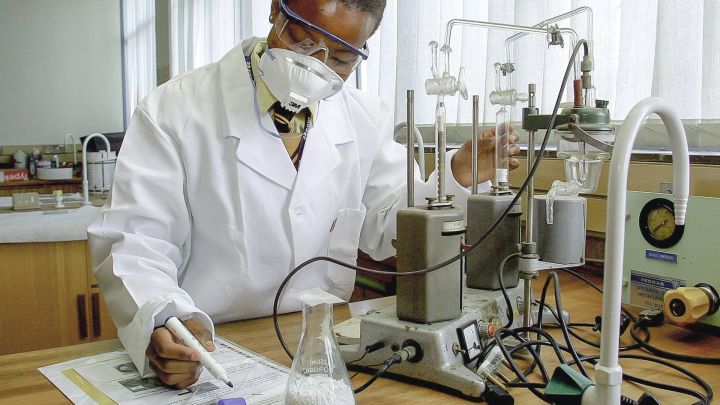Apparatus
The New Generation Of Breast Cancer SERD Drug, Elastoxan, Shows Promise!
A new generation of oral selective estrogen receptor degrader, elastostat, has shown promise in clinical studies over standard second-line treatments such as fulvestrant for the treatment of patients with metastatic hormone receptor-positive breast cancer.

According to data presented at the 2022 San Antonio Breast Cancer Symposium (SABCS), the oral selective estrogen receptor degrader (SERD) elastoxan (RAD-1901) has shown promise over standard second-line therapy (e.g. fulvestrant, Faslodex) for the treatment of patients with metastatic hormone receptor-positive breast cancer.

Assembled progression-free survival (PFS) analysis from the Phase III EMERALD (NCT03778931) clinical trial demonstrates that the effective duration of prior CDK4/6 inhibitors in breast cancer patients, compared to standard therapy, is positively correlated with PFS from treatment with elastoxan. In breast cancer patients with ESR1 mutations who had previously used CDK4/6 inhibitors for at least 12 months, the benefit of the new drug was even more pronounced, with patients achieving a mean PFS of 8.6 months with elastoxan compared to 2.1 months in the standard treatment group.
"The data from the EMERALD trial suggest that in the case of a patient population that is endocrine therapy sensitive or tumour dependent on the estrogen receptor, the therapeutic benefit of the new drug elastoxan is more pronounced compared to standard endocrine therapy," said Dr Aditya Bardia.
The study update showed that the duration of prior treatment with CDK4/6 inhibitors does appear to predict the clinical benefit of elastoxan in endocrine therapy-sensitive patients, with mean PFS in ESR1-mutated tumours already exceeding eight months.

In an interview with OncLive, Bardia, Assistant Professor of Medicine at Harvard Medical School and Attending Physician at Massachusetts General Hospital, discusses the current status and future of oral SERD drugs as standard endocrine therapy.
Endocrine therapy is the mainstay of treatment for metastatic hormone receptor-positive breast cancer. Typically, endocrine therapeutic agents such as aromatase inhibitors plus CDK4/6 inhibitors are used as first-line treatment for patients with hormone receptor-positive metastatic breast cancer, but patients will eventually experience disease progression.
In second-line therapy, we prefer to use fulvestrant as endocrine therapy, but the mean PFS for fulvestrant is shorter, at approximately 2 months. In addition, fulvestrant is administered as an intramuscular injection, which may cause discomfort to patients. There is an unmet clinical need for better endocrine therapies for the second and second-line treatment of patients with metastatic breast cancer.
Novel oral SERD drugs with standard endocrine therapy as adjuvant therapy for patients with early-stage breast cancer will be evaluated in most patients with endocrine-sensitive breast cancer.
The EMERALD trial, designed to investigate the novel SERD drug elastoxan in settings such as second-line therapy for the treatment of patients with metastatic hormone receptor-positive breast cancer who have previously received CDK4/6 inhibitors.
Patients are randomised in a 1:1 ratio to receive either elastoxan or other endocrine therapy of their physician's choice, respectively, with the majority of patients in the control group going on fulvestrant. The primary endpoint of the trial is PFS in all patients, as well as looking at PFS in patients whose tumours have an ESR1 mutation or are estrogen receptor positive.
At SABCS2021 we saw the preliminary results of the EMERALD study, which showed that elastoxan was superior to standard endocrine therapy in terms of PFS.
Duration of prior CDK4/6 inhibitor use, used as a surrogate marker for endocrine sensitive breast cancer, whether you look at the length of time of 6, 12 or 18 months, you will find a positive correlation between the duration of prior patient use of CDK4/6 inhibitors and elastoxan in terms of PFS.

For example, in patients who had previously received CDK4/6 inhibitors for 12 months or more and who carried the ESR1 mutation, patients had a mean PFS of more than 8 months with elastoxan compared to approximately 2 months in the standard endocrine therapy group. Clearly, PFS was significantly improved, with clinical significance and statistical significance.
The common adverse effect asserted with elastoxan is nausea, but it is not severe and therefore the probability of using an anti-emetic regimen is quite low - most patients do not require any anti-nausea medication. In addition, the proportion of patients forced to stop treatment due to adverse reactions is very low, in the single digits. Therefore, most patients can use elastoquin without additional medication.
EMERALD is the first trial to evaluate the new oral SERD drug, elastoxan, in a Phase III clinical study. The results of the trial have been generally positive and we have submitted a New Drug Marketing Application for approval of the drug for the treatment of patients with metastatic hormone receptor-positive breast cancer, with other oral SERD drugs in development.
If the FDA approves elastoxan for the treatment of patients with metastatic hormone receptor-positive breast cancer, there are 2 key points to note.

Firstly, that elastoxan is evaluated as a monotherapy drug; for appropriate patients, it can be used according to the FDA-approved indications; and secondly, that oral therapy gives patients less therapeutic impact and is more convenient, whereas fulvestrant administration requires intramuscular injections. In conclusion, the prospects for emerging drugs such as oral SERD elastoxan are very good.
-
![]()
![]() ApparatusFeb 16, 2026
ApparatusFeb 16, 2026World's First Antibody Targeting B7H7 Approved For Clinical Trial In The Us
-
![]()
![]() ApparatusFeb 15, 2026
ApparatusFeb 15, 2026Fda Accepts Zuranolone's Nda Application And Grants It Priority Review For The Treatment Of Mdd And Pdd
-
![]()
![]() ApparatusFeb 14, 2026
ApparatusFeb 14, 2026Heavyweight! First ADC Drug For Refractory Ovarian Cancer Receives Accelerated FDA Approval
-
![]()
![]() ApparatusFeb 13, 2026
ApparatusFeb 13, 2026Immune And Astrazeneca Launch Strategic Research Collaboration To Accelerate Drug Target Discovery
-
![]()
![]() ApparatusFeb 12, 2026
ApparatusFeb 12, 2026The "hand speed" is extremely fast, and scientists create a DNA robot arm that can move at a high speed




